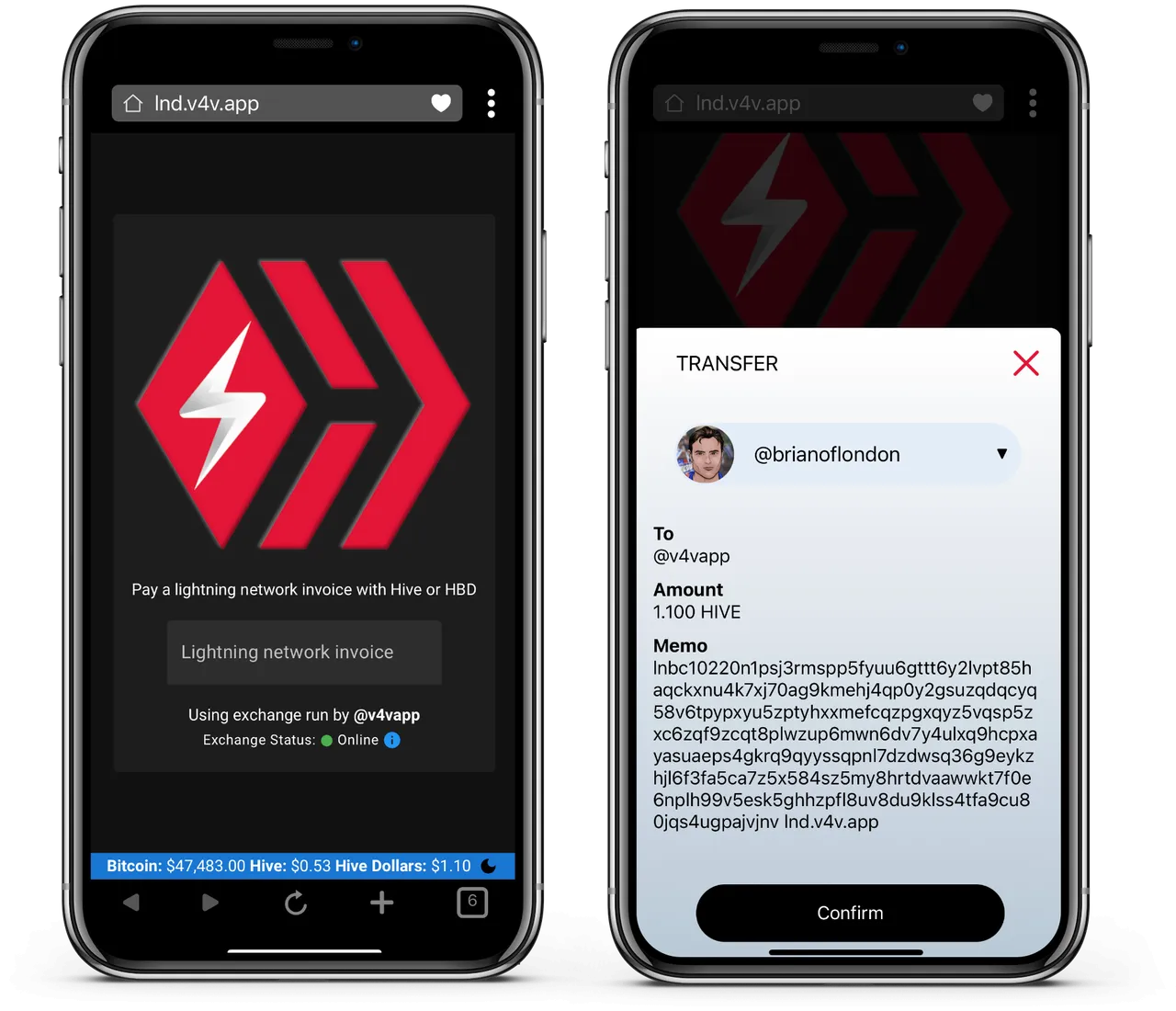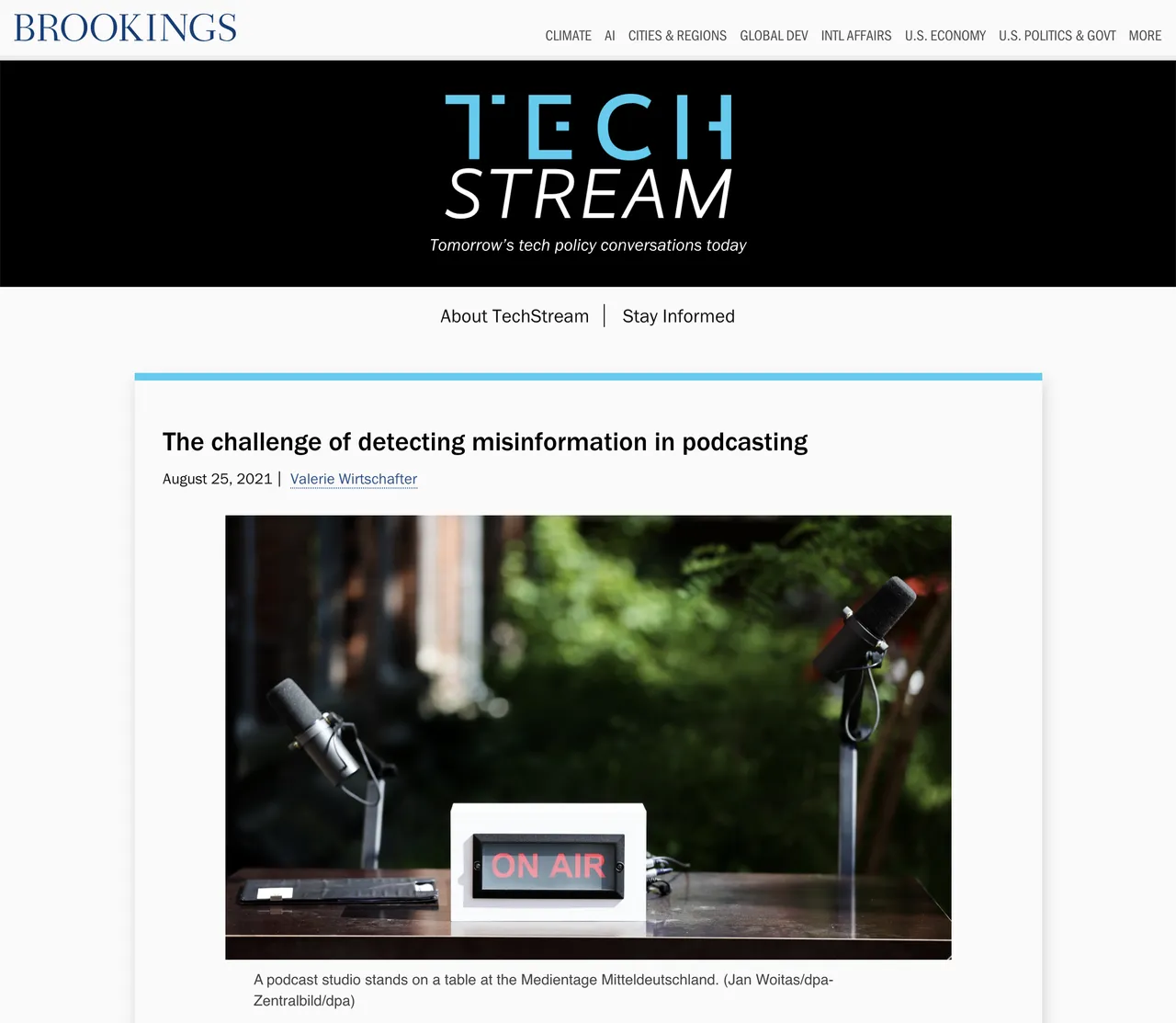It's one week since I launched my funding request for the @v4vapp Podcasting 2.0 dapp I'm building. I've got about 40% of the votes I need so far, hint, hint...
Support Proposal 188 on PeakD
Support Proposal 188 with Hivesigner
Over the last week I've continued with live testing and it's going well. A few people have streamed payments to podcasters and tested out the exchange facility for turning Hive into Sats. It's working.
There have been updates to Hive Keychain and some other apps which will filter through in the Apple App store and Google Play Store and when these go live, I'll be shouting more about how to use all this.

In the meantime I wanted to share and analyse a new article from the notorious guardians of the status quo at the Brookings Institute (funded by big tech giants like Apple, Facebook and Google (NYT link)) and this is declared at the end of the article as well.

The challenge of detecting misinformation in podcasting
Confronted by viral conspiracy theories, climate change denialism, extremist movements, and anti-democratic groups (among others) feeding off false information online, social media platforms have taken steps in recent years to curtail the spread of misinformation. But even as tech companies have come under pressure to crack down on misinformation, one key avenue of information distribution in the digital economy—podcasting—has escaped significant scrutiny, despite the massive scale of the podcast ecosystem.
If that doesn't signal the start of a concerted attack on the free and open podcast scene, I don't know what would.
Unfortunately, the spread of misinformation in podcasts appears to be common. In a preliminary analysis of more than 8,000 episodes of popular political podcasts, approximately one-tenth includes potentially false information. Due to the way podcasts are distributed, however, addressing the problem will require a different approach than in other sectors of the tech industry, one that combines broad infrastructure changes and a fundamental rethinking of the role of the listener in content moderation.
The author is very concerned that the plebs who listen to podcasts, like the listeners of Joe Rogan or producers of the @no-agenda show such as myself, for example, will be completely unable to determine how to think for themselves without the calming and sober influence of the geniuses at the Brookings Institute.
So the author deployed a significant investment of tech to get to the bottom of just how bad this podcasting thing really is.
The potential for misinformation to go largely unchecked on podcasts is clear. But what is the scale of this problem? To explore that question, I recently examined more than 8,000 episodes of popular political podcasts. By using machine learning and natural language processing to match transcriptions of the podcasts with a fact-checking database of false or misleading political claims, I found that more than one-tenth of the episodes shared potentially false information.[1] These flagged episodes have collectively received more than 100 million views, likes, or comments.
Wow. 10% of podcasts had bad facts (according to Brookings).
Then she* gets to the real heart of the problem. Podcasting is built on the decentralised RSS feed/subscription model which makes gatekeeping almost impossible! Imagine the horror: Apple can ban a podcast from its app, but you can still listen to Alex Jones on many other apps.
From an infrastructure perspective, the nature of the RSS feed, which is open-sourced and accessible by design, represents a significant hurdle for content moderation. For example, Apple’s podcasting app—one of the most widely used apps for streaming episodes—aggregates content across thousands of approved RSS feeds. Once Apple approves a feed, it does not control the content added to these feeds. Although Apple can remove the RSS feed from its platform, some smaller platforms allow any content on an RSS feed to be played through their services, making it easy for listeners to access a removed podcast elsewhere. As a result, a content moderation decision at one platform, like removing a single episode urging listeners not to get a COVID vaccine, may not affect its availability via other platforms. Addressing the moderation of misleading material instead requires a fundamental rethinking of the broader podcast infrastructure.
And just who is going to institute a fundamental rethinking of the broader podcast infrastructure? I can tell you the answer. It's @podcastindex and the crew working on all the new Podcasting 2.0 features like shared comments, global, instant notifications of new episodes and a "going live" notification feature. It is people like @theycallmedan and the team at @threespeak working to decentralise the back end storage. It is people like me, free speech extremists.
And your worst nightmare: the decentralised, unstopable payment system which blunts your most potent weapon: the Advertising boycott. That's why I'm working so hard on @v4vapp.
This latter infrastructure-level change will be difficult to implement but is fundamental to addressing the risks associated with the spread of misinformation.
Oh it is so much worse.... not only is there nobody to implement the censor's vision of a brave new podcasting world, many of the people who ARE working on the new Podcasting 2.0, fundamentally reject your vision of "misinformation" and the idea that global elites and educated gatekeepers will decided what we can and can't hear.
Support Proposal 188 on PeakD
Support Proposal 188 with Hivesigner
*I hope I used the right pronoun, the Author's twitter bio didn't list preferred pronouns)

- Vote for APSHamilton's Witness KeyChain or HiveSigner
- Vote for APSHamilton's Witness direct with HiveSigner
- Get Brave
- Use my referral link for crypto.com to sign up and we both get $25 USD
- Sign up for BlockFi
- Find my videos on 3speak
- Join the JPBLiberty Class Action law suit
- Verify my ID and Send me a direct message on Keybase
